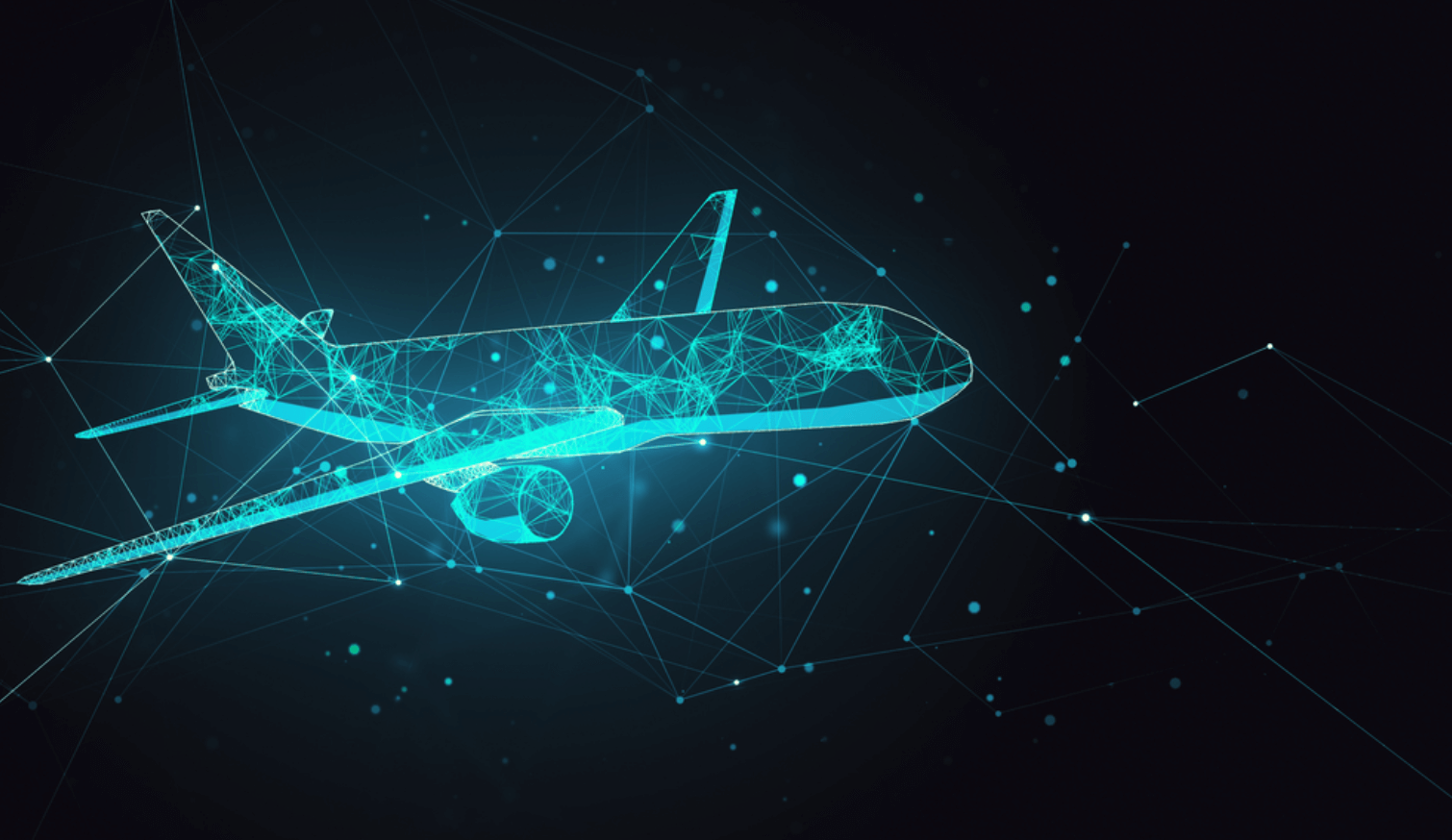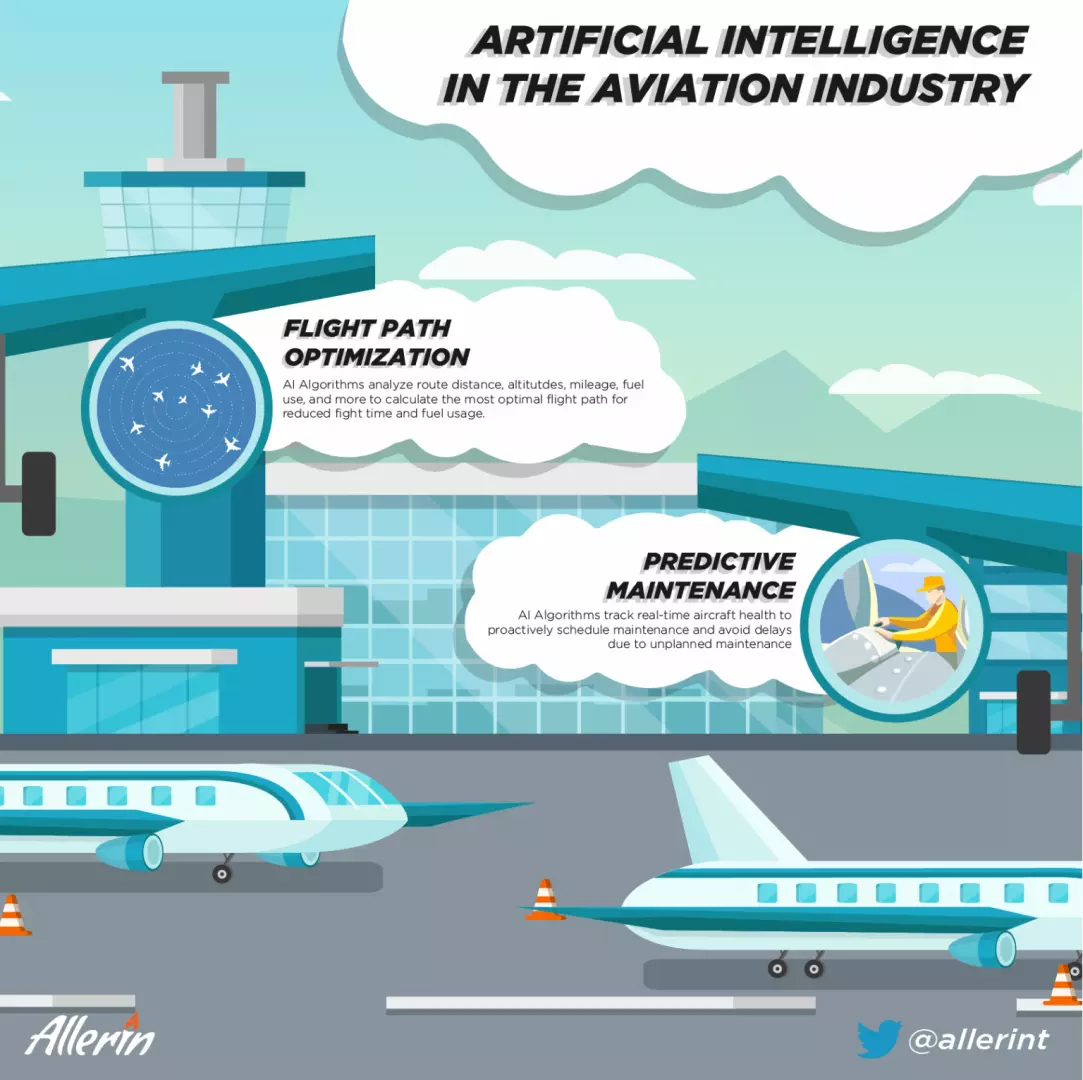Comments
- No comments found

Artificial intelligence (AI) in aviation has diverse applications, from reducing flight delays to increasing jet fuel efficiency.
Leading airline companies are already prototyping and testing AI applications to increase customer satisfaction and improve operational performance.
Air travel passengers are projected to reach 4 billion in 2024, exceeding pre-COVID-19 levels, according to the International Air Transport Association. To deal with such a huge number of passengers, airlines need to innovate and integrate with emerging technologies like AI and machine learning. AI in aviation has the potential to increase urban air mobility, improve airline safety, automate flight scheduling, and enable predictive maintenance of airplanes.

AI algorithms analyze the flight data like route distance, altitudes, mileage, fuel use, aircraft type, weather conditions and a lot of other data points. The AI application analyzes the flight data and determines the optimal flight path that would help reduce not only the flight time but also the amount of fuel used during the flight.
Alaskan Airlines is testing an AI system that can calculate the most efficient flight route in real-time. During its six-month pilot program, this system reduced flight time by five minutes and saved a whopping 480 thousand gallons of jet fuel.
Airlines have to bear the high cost of delays and cancellations. As per the Bureau of Transportation Statistics, airline carrier delays account for 35% of all flight delay reasons. Unplanned maintenance is the top cause that leads to flight delays from airline carriers. Machine learning algorithms and IoT can help carriers curb costs of unplanned maintenance by monitoring aircraft and detecting anomalies. The machine learning algorithm will track the real-time technical condition of the aircraft and notify technicians of possible malfunctions. In this way, aircraft technicians can proactively implement maintenance activities like replacing airplane parts.
This AI system will also automate the reporting of maintenance operations to senior leadership teams, which in turn can track the expenses and inventory and get insights on operations. Through such a seamless reporting and analytics system, airlines can also reduce costs on expedited delivery of parts and overtime compensation for crews.
The applications for AI in aviation are evolving and there are many fascinating new developments in the pipeline. AI in aviation is transforming everything from flight management systems and air traffic control to crew scheduling and airport security. AI is reshaping the aviation industry to ensure passenger safety, optimize operational workflows and enhance customer experience.
Naveen is the Founder and CEO of Allerin, a software solutions provider that delivers innovative and agile solutions that enable to automate, inspire and impress. He is a seasoned professional with more than 20 years of experience, with extensive experience in customizing open source products for cost optimizations of large scale IT deployment. He is currently working on Internet of Things solutions with Big Data Analytics. Naveen completed his programming qualifications in various Indian institutes.
Leave your comments
Post comment as a guest